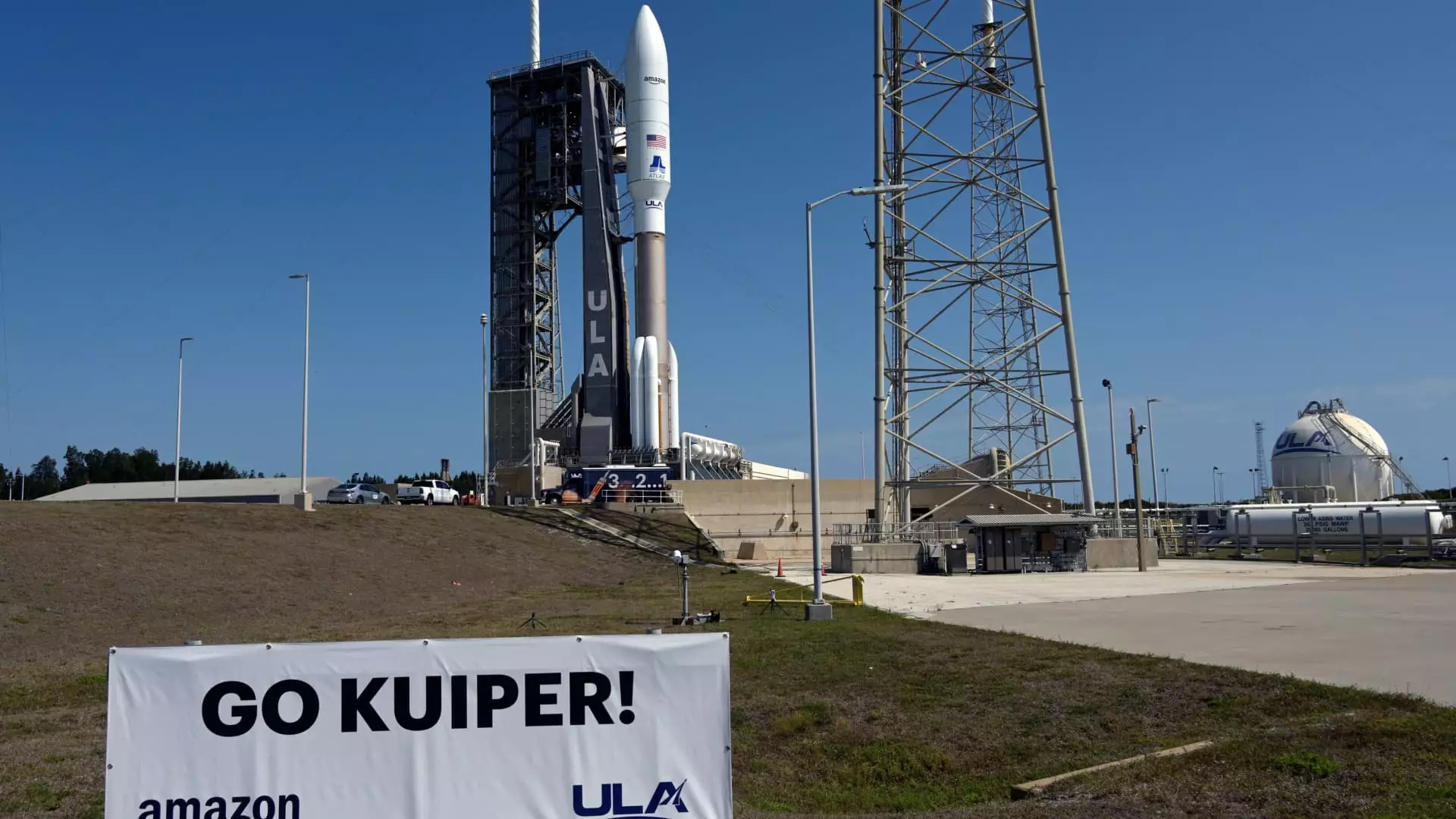On Monday, the ambitious Project Kuiper, Amazon’s venture into the satellite internet arena, found itself ensnared in an all-too-familiar scenario: a launch delay. With only 30 minutes remaining on the countdown clock, United Launch Alliance (ULA) made the difficult announcement to scrub the mission due to an “elevated purge temperature” issue within the Atlas V rocket’s booster engine. This setback highlights the tumultuous nature of space exploration—one punctuated by both monumental advancements and unforeseen challenges. It’s a reminder that even the most well-resourced and meticulously prepared projects can experience hiccups, forcing us to reconsider the pace at which we approach the final frontier.
Amazon’s High-Stakes Game
The stakes couldn’t be higher for Amazon, a company that’s become synonymous with ambitious tech projects. With a clear goal to deploy over 3,000 satellites to compete with industry leaders like SpaceX’s Starlink, Amazon’s Project Kuiper aims to provide high-speed internet to users in even the most remote corners of the globe. Yet, these aspirations come with formidable regulatory pressures. The Federal Communications Commission (FCC) has set a deadline that looms like a dark cloud: by July 2026, Amazon must have over 1,600 satellites in orbit. This fascinating juxtaposition of immense ambition versus stringent regulation sheds light on the intricate balance of innovation and compliance that companies must navigate in the space sector.
The Competitive Playing Field
Competing in the satellite internet landscape isn’t just about technology; it’s also a battle of image and public opinion. With Elon Musk’s SpaceX leading the charge, other companies like OneWeb and Viasat are also in the fray. The ongoing tussle isn’t simply about who launches faster—it’s about who can deliver reliable and affordable internet service to a waiting market. Amazon’s competition strategy appears solid, but the recent delay casts a shadow on their ability to deliver on time. Is the internet bubble about to burst under the weight of lofty ambitions?
The Broader Implications
What this delay ultimately signals is multi-dimensional. It serves as a cautionary reminder of the infrastructure and technological intricacies involved in modern space ventures. Beyond the immediate implications for Amazon and ULA, this setback raises questions about the sustainability and scalability of satellite internet services that rely on large constellations. The potential for human error, technical failure, and regulatory challenges suggests that we may be too ambitious too quickly in our hopes for universal connectivity.
Amidst the cheers for innovation and progress, there needs to be a grounded recognition of the intricate dance between ambition and practicality. The dream of a seamless internet connection, beamed from the stars, is alluring, but as Project Kuiper shows, the road to orbit is fraught with complication. The world is watching, and we can only hope that the next countdown yields a more successful outcome.


Leave a Reply